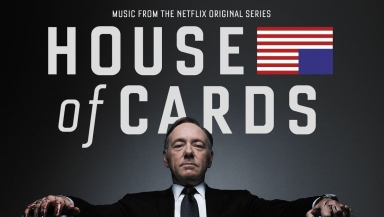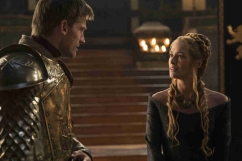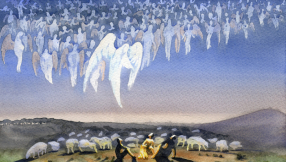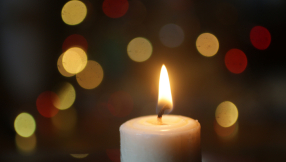
The best art and literature has always critiqued as well as reflected the age in which it is created. From Jonathan Swift's biting satire to Charles Dickens' treatment of London poverty; from Picasso's depictions of the Spanish Civil War to the late Harper Lee's stunning denunciation of segregation, the best art tells us something about the time in which it was created as well as timeless truths.
While it may not be quite in the exalted category of those classic works of art, there's plenty of excitement around the return of House of Cards. The fourth season of the Netflix drama is released today and the hype is as effervescent as ever.
The show is popular because it's well cast, beautifully shot and allows us a glimpse into a world of White House intrigue. One of the keys to its success though, is that it's also a work of art which offers a devastating critique of our political system, our ethical standards and our human nature.
House of Cards began on British TV. In the aftermath of the resignation of Margaret Thatcher, audiences were thrilled and horrified in equal measure by the antics of Francis Urquhart – a malevolent Member of Parliament whose ruthless pursuit of power ended up with him as Prime Minister.
It was only a matter of time before the idea was picked up and transferred to America. In the first three seasons of the American version we followed the rise of Kevin Spacey's Congressman Frank Underwood who stops at nothing in his quest to gain power. His wife Claire is a classic Lady Macbeth figure – ably assisting Underwood's schemes and at times, spurring him on to greater deeds of cunning and vice.
Underwood is the textbook anti-hero – scheming, vain, proud and seemingly indestructible. We are brought into his confidence through his occasional asides to camera – breaking the fourth wall and giving us a knowing wink. Yet the further into the story we get, we begin to see chinks in his armour.
House of Cards teaches us about the human propensity to sin – something an increasing number of our most popular TV shows are grappling with – but there's more to it than that.
The show takes place in a world without God. There's a telling scene in the third season where Underwood is left alone in a church and spits on a statue of Jesus, before it falls to the floor and smashes. It's a shocking, disgusting, yet compelling scene.
This world without God was envisaged by the atheist philosopher Friedrich Nietzsche – who gazed into the abyss and gave an honest account of what he saw. Unlike contemporary atheists such as Sam Harris and Richard Dawkins, Nietzsche didn't labour under the misapprehension that getting rid of God would lead to a peaceful, progressive utopia.
"God is dead. God remains dead. And we have killed him." Nietzsche asked, "How shall we comfort ourselves, the murderers of all murderers? What was holiest and mightiest of all that the world has yet owned has bled to death under our knives: who will wipe this blood off us? What water is there for us to clean ourselves? What festivals of atonement, what sacred games shall we have to invent? Is not the greatness of this deed too great for us? Must we ourselves not become gods simply to appear worthy of it?" The parallels with Macbeth's hallucinating horror are obvious.
Nietzsche doesn't stop there, though. He argued we must rid ourselves of Christian morality as well as God. He saw that as a good thing. Giles Fraser says, "Nietzsche's case against Christianity was that it kept people down; that it smothered them with morality and self-loathing. His ideal human is one who is free to express himself (yes, he's sexist), like a great artist or a Viking warrior. Morality is for the little people. It's the way the weak manipulate the strong. The people Nietzsche most admired and aspired to be like were those who were able to reinvent themselves through some tremendous act of will."
This gets to the heart of Nietzsche's 'will to power' – that humans are driven by a desire to achieve, dominate and even subjugate. It's the defining moral characteristic at the core of House of Cards. The protagonists set themselves apart from the 'little people.' They chew up and spit out anyone who ends up in their way.
The Underwoods think they're untouchable but slowly, during season three (and I presume during season four) we begin to see their relationship unravelling, while their grip on their power and their own faculties seems increasingly tenuous.
"What good will it be for someone to gain the whole world, yet forfeit their soul?" This question is Jesus' stinging riposte to Nietzschean ethics. The will to power may get you to the White House, but can it satisfy your deepest longings?

That House of Cards is subtly (maybe tangentially), asking these questions makes for fascinating TV. It's the dark companion of The West Wing – a show where the President was a good man, doing his best to serve his country. While the West Wing was brilliant television, it didn't ask the kind of questions that House of Cards brings to the fore.
Like those great works of art, House of Cards forces us to ask what kind of world we are living in. It is a biting indictment of the 21<sup>st Century and our power-hungry culture. In the post-Christian West we see a man described by the Huffington Post as, "a serial liar, rampant xenophobe, racist, birther and bully" about to become the Presidential nominee for the Republican Party. It's a world where rapacious corporations exploit the finite resources of the earth, where millions of refugees flee war and terror and are often met with indifference or hostility, where beheadings, rape and torture are the everyday weapons used by ISIS.
What good is it for us to gain the whole world but lose our souls? asked Jesus. It's a timely question and one millions of us may be forced to ask anew this weekend as we sit down to watch the enthrallingly Shakespearean machinations of House of Cards.

















